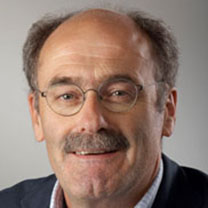The SU2C-Dutch Cancer Society Tumor Organoids Dream Team developed a groundbreaking technology that allows tumor samples isolated from patients to be maintained and grown in the laboratory setting. These growing tumors, which are called “tumor organoids,” provide an unprecedented opportunity to combine DNA sequence analyses with functional studies of tumors from individual patients. Most importantly, these tumor organoids will allow studies of sensitivity and resistance to a large number of anticancer drugs in the lab.
- Who We Are
Stand Up To Cancer works relentlessly to offer the newest, most effective, and most promising cancer treatments to patients quickly by bringing together the best minds to collaborate, innovate, and share cancer research.
Visit Who We Are - What We Do
Stand Up To Cancer enables scientific breakthroughs by funding collaborative, multidisciplinary, multi-institutional scientific cancer research teams and investigators. Thanks to the support of our dedicated partners and the entertainment community, SU2C is able to bring widespread attention to cancer research and treatments.
Visit What We Do - Clinical Trials
Research is changing the way cancer is being treated. If you’ve been diagnosed with cancer, a clinical trial may offer access to the latest and most promising science, while helping to light the path for future survivors.
Visit Clinical Trials - For Patients & Caregivers
We understand the challenges a diagnosis can bring. Browse through our list of patient and caregiver resources to help you throughout your cancer journey, and learn more about clinical trials.
Visit For Patients & Caregivers - Research
Stand Up To Cancer was created to accelerate groundbreaking cancer research that will get promising new cancer treatments to patients quickly. We won’t stop until every cancer patient is a long-term cancer survivor.
Visit Research - Ways to Give
Donations can be mailed to:
Stand Up To Cancer
P.O. Box 843721
Los Angeles, CA 90084-3721
Visit Ways to Give






